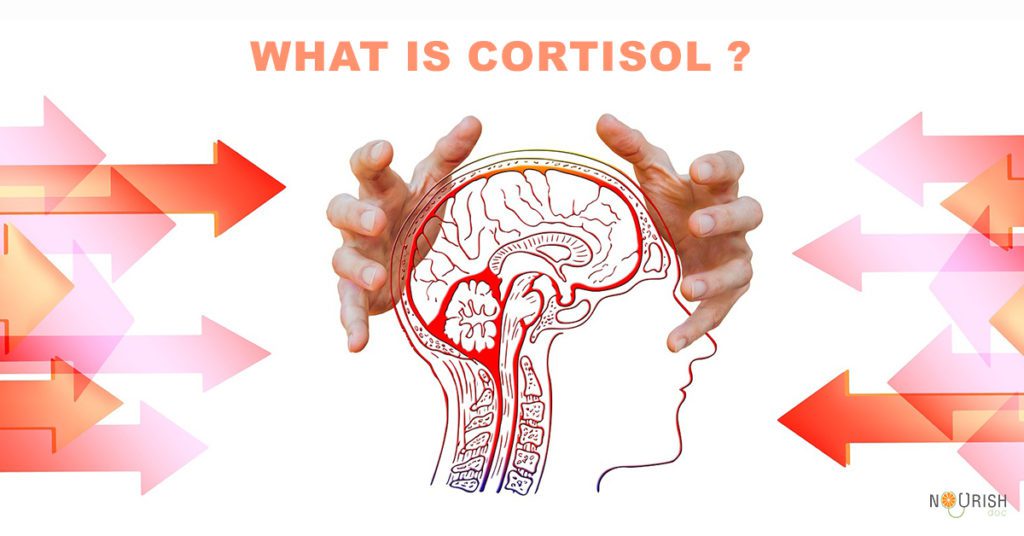What is cortisol?
Cortisol is frequently referred to as the “stress hormone” because of its link to the stress reaction. However, cortisol is a great deal more than only a hormone released during stress. Cortisol is a steroid hormone that regulates a broad assortment of vital processes throughout the body, including metabolism and the immune reaction. Understanding cortisol and its impact on the body can balance your hormones and attain good health. An alternative name for cortisol is Hydrocortisone
What is cortisol? Cortisol is a steroid hormone, among the glucocorticoids, made at the adrenal glands’ cortex and then released into the bloodstream, which transfers it all around the body. Nearly every cell comprises receptors for cortisol, and thus cortisol can have lots of different activities depending on which kind of cells it is acting upon.
Cortisol is one of the steroid hormones and is produced from the adrenal glands. Secretion of this hormone is controlled by the hypothalamus, the pituitary gland, and the adrenal gland, a mixture of glands often known as the HPA axis.
What does cortisol do?
Because most bodily cells have cortisol receptors, it impacts many distinct functions within the body. Cortisol can help control glucose levels, regulate metabolism, reduce inflammation, and help with memory formulation. It’s a controlling effect on water and salt balance and helps control blood pressure. Cortisol also supports the growing fetus during pregnancy in women. All these functions make cortisol a critical hormone to protect overall health and well-being.
High & Low cortisol levels effects
– High cortisol level effects
Sometimes, tumors on the pituitary or adrenal glands may give rise to a condition called Cushing syndrome, characterized by elevated cortisol levels in the blood. People with Cushing syndrome will experience rapid weight gain in the face, stomach, and chest. Often doctors will find this due to the person’s slender arms and legs compared to the hefty weight in the heart of the body. Cushing syndrome also causes a flushed face, higher blood pressure, and changes in the skin. Osteoporosis and mood swings are also a factor considered with Cushing disease.
High cortisol levels may also lead to changes in a woman’s libido and menstrual cycle, despite Cushing’s disease. Stress and depression may also be linked to elevated cortisol levels.
– Reduced cortisol levels effects
Low cortisol levels can lead to a condition called primary adrenal insufficiency or Addison disease. Primary adrenal insufficiency is an autoimmune disorder that is rare but causes damage to the adrenal glands. Symptoms may start gradually, but they can be severe. Patients with primary adrenal insufficiency can experience fatigue, muscle loss, weight loss, mood swings, and skin changes.
Consult your doctor if you suspect that your cortisol levels aren’t where they need to be. Your physician may order a range of tests to determine if you have low or higher cortisol levels. You may want to know from your doctor what underlying conditions could be impacting my cortisol levels and how to manage cortisol levels to recover your health.
How is cortisol controlled?
Blood levels of cortisol change throughout the day but usually are higher in the morning when we wake up and then fall during the day. This is known as a diurnal rhythm. This pattern is reversed for people working at night, so the timing of cortisol release is linked to daily activity patterns. Additional cortisol is released to assist the body to react appropriately in response to stress.
The secretion of cortisol is principally controlled by three inter-communicating areas: the hypothalamus from the mind, the adrenal gland, and the adrenal gland. This is known as the hypothalamic-pituitary-adrenal axis. When cortisol levels in the blood are reduced, a group of cells in a brain region known as the hypothalamus releases a corticotrophin-releasing hormone, which causes the adrenal gland to secrete another hormone, adrenocorticotropic hormone, in the bloodstream. Elevated levels of the adrenocorticotropic hormone are found in the adrenal glands and stimulate cortisol secretion, causing blood levels of cortisol to grow. Since the cortisol levels rise, they begin to block the release of corticotrophin-releasing hormone in the hypothalamus and adrenocorticotropic hormone in the pituitary. Thus, the adrenocorticotropic hormone levels start to fall, contributing to a drop in cortisol levels. This is referred to as a negative comments loop.
High cortisol levels over a prolonged time may also result in a lack of sex drive, and, in women, periods can get irregular, less regular, or cease altogether (amenorrhea). There is a longstanding association between high or low cortisol levels and a range of psychiatric conditions such as depression and anxiety. However, the importance of this isn’t yet clearly understood.
Natural ways to balance cortisol levels
Natural methods for balancing cortisol levels
– Exercise. However, bear in mind that taking rests will help in lowering cortisol, while over-exercising can actually raise cortisol. The continuous demand for glucose to the muscles may create a sort of chronic stress. You might discover yoga, swimming, or walking in nature helps relax your mind while exercising your body.
– Ayurvedic massage: A weekly or daily Ayurvedic massage will decrease tension and relax muscles
Talk to your physician or Ayurvedic practitioner about taking other practices to reduce stress.
– Try yoga and/or meditation to slow down your mind, reduce anxiety, and reduced cortisol levels. Even deep breathing might help.
– Routine: Go to bed at the same time every night, and wake up at the same time.
– Enjoy outdoors in the sunshine. This creates an excellent circadian rhythm, which optimizes your hormone balance.
– Eliminate alcohol. You might think it calms you, but alcohol really raises cortisol.
– Avoid caffeine, sugar, and processed foods. Eat food that’s natural and whole.
If you have concerns about anxiety or its effects on your health, talk to your doctor. Testing and/or therapy options may be recommended based upon your symptoms and signs.







